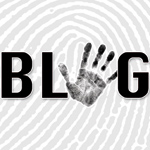 One issue that has been exercising both the legal profession and the expert witnesses that provide opinion in criminal cases has been that of Bayesian inference, or Bayesian statistics. Bayes, the 18th-century mathematician, produced a method for calculating the statistical probability of an event happening given more than one variable. It had been used in numerous trials to state the probability of a suspect being present at the scene based on the probability of other related events.
One issue that has been exercising both the legal profession and the expert witnesses that provide opinion in criminal cases has been that of Bayesian inference, or Bayesian statistics. Bayes, the 18th-century mathematician, produced a method for calculating the statistical probability of an event happening given more than one variable. It had been used in numerous trials to state the probability of a suspect being present at the scene based on the probability of other related events.
In 2010, however, a person convicted of murder took his case to the Court of Appeal to challenge shoe print evidence that had been used to convict him. The argument that had been used purported to show that a pair of Nike trainers owned by him must have made a shoe print at the scene of the murder.
The court quashed the conviction, ruling that the footwear expert witness who had made the assertion had made “poor calculations about the likelihood of the match” and had explained his reasoning badly. Moreover, the judge ruled that the theorem should not be used in future unless the figures underlying the calculation were “firm”.
The ruling threw the world of mathematics into a flat spin. How could a non-statistician make a judgement on statistical probability? A prominent statistician and expert witness in many trials (including that of Levi Bellfield in 2007), Prof Norman Fenton, claimed that future trials might be jeopardised if the statistical analysis weren’t available.
The Royal Statistical Society has a working group on statistics and the law. Its chair, Prof Colin Aitken of Edinburgh University, is quoted in The Guardian as saying it is “…usual for forensic experts to use Bayes' theorem even when data is limited, by making assumptions and then drawing up reasonable estimates of what the numbers might be.”
In an article on the RSA website, published in December last year, however, Prof Aitken states: “Statisticians cannot approach the law with missionary zeal claiming that an embrace of Bayes will ensure the abolition of all miscarriages of justice. Statisticians do not have a monopoly of legal wisdom.”
The RSA working group was formed after the quashing of the conviction of Sally Clark for the murder of her children, following the exposure of the so-called ‘prosecutor’s fallacy’. That confuses the probability of an event occurring with the probability of guilt.
Not everyone has been wringing their hands – many statisticians have applauded the fact that the judge required expert witnesses to deal only in ‘firm’ facts. There can really be little argument with that.
A welcome recommendation to come out of all this debate is that legal education should include some element of training in the correct use of statistics. That makes a great deal of sense; after all, statistics is an extension of logic and lawyers are supposed to be skilled in that particular black art. As long ago as the 1970s it was a prerequisite for my degree in social studies that one had passed the statistics exam – the only compulsory module.
I’ve bored anyone who would listen with the story of how I scored 114% in the exam – one reason, perhaps, why I don’t believe everything the statisticians tell me, even the excellent individuals to be found on the Expert Witness Directory of this site.